
# 1117-18 FDC - 1958 Kossuth 2 stamps
1958 4¢ Lajos Kossuth
Champions of Liberty
Birth Of Lajos Kossuth
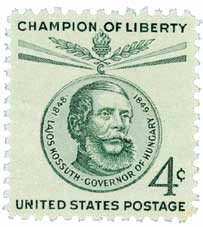
Hungarian lawyer, statesman, and Governor-President Lajos Kossuth was born on September 19, 1802, in Monok, Kingdom of Hungary.
Kossuth was the oldest of four children born into a Lutheran noble family. Growing up, he spoke Hungarian, German, and Slovak and studied at the University of Pest.
As a young man, Kossuth worked at his father’s law practice and as steward to the countess Szapáry. He then served as deputy to Count Hunyady at the National Diet (the main legislative body). In that role, he made detailed reports on the proceedings, which were circulated among other magnates, gaining him attention. Kossuth was then tasked with editing a parliamentary gazette, which helped him gain further notoriety. Eventually, Kossuth was ordered to stop circulating his gazette, but he spoke out about the importance of freedom of the press and was arrested, charged with high treason, and imprisoned for five years. He used his time in prison to read and learn English.
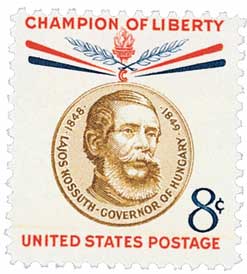
By the time of his release, Kossuth was a national hero and was made editor of a liberal newspaper. Kossuth called for Hungarian to be declared the national language and the possible independence from Austria. In 1847, he was elected to the new Diet and became a leader in the Opposition Party. The following year, news of the revolution in Paris inspired him to demand a parliamentary government for Hungary and a constitutional government for the rest of Austria. Kossuth quickly became a leader of the European revolution. When his speech was read in Vienna, a mob erupted.
A revolution then broke out in Buda and the emperor assented. They created the first Hungarian responsible government and Kossuth was made Minister of Finance. In that role, he established a new Hungarian coinage and produced banknotes with his name printed prominently on them (they became known as Kossuth Notes). A new paper was also started and named after him.
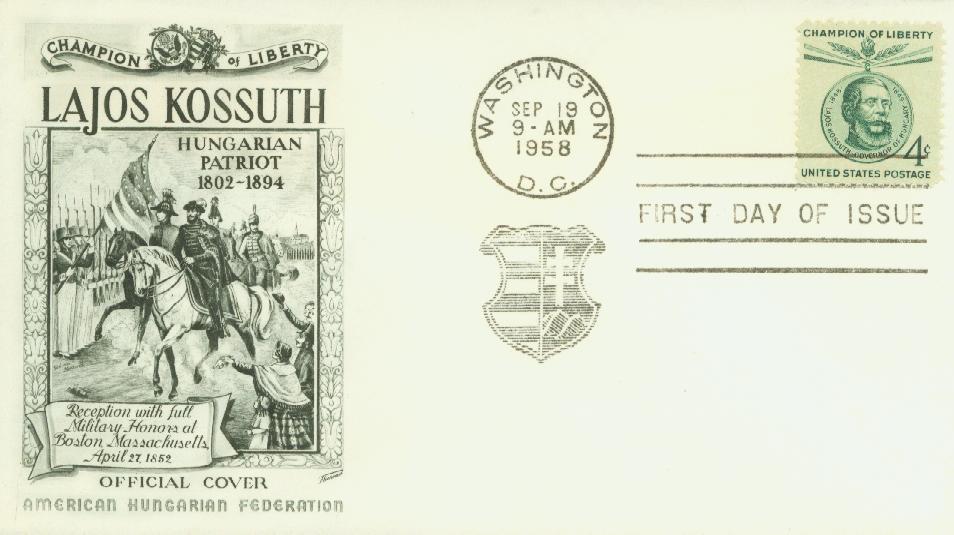
Kossuth delivered a notable speech in July 1848, telling the nation to arm in self-defense and calling on 200,000 men to take up arms. He then traveled from town to town to gain support. That October, he was made Prime Minister of Hungary and president of the Committee of National Defence. By April 1849, the Hungarians had several military victories and Kossuth issued the Hungarian Declaration of Independence. Kossuth was then made regent-president, a position he held from April 11 to August 11 of that year. With the entry of Russian forces into the war, he abdicated, allowing a general to take his place, but he ended up surrendering to the Russians, who in turn gave them over to the Austrians.
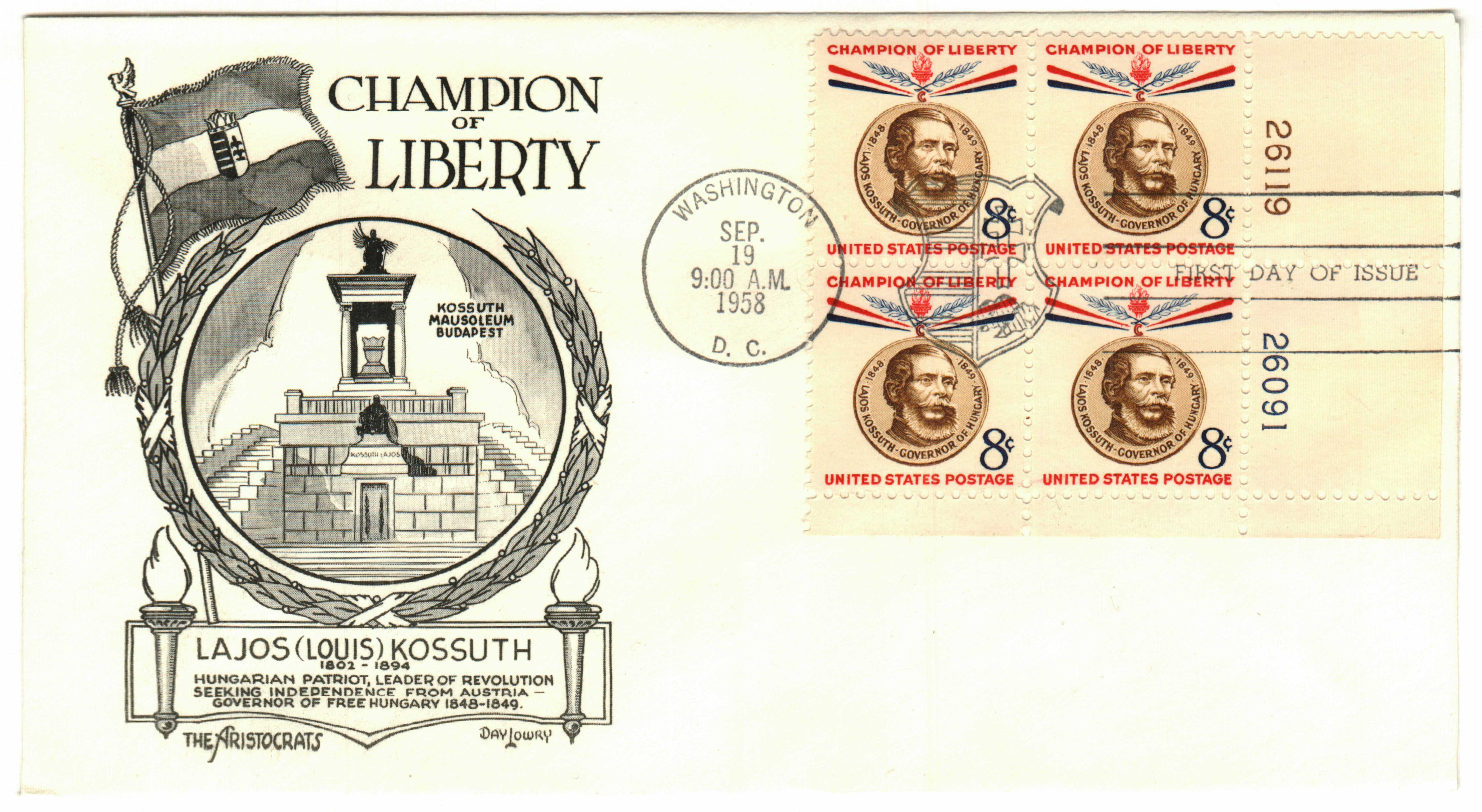
Kossuth then had to flee his home. He first went to the Ottoman frontier before making his way to England. In England, thousands turned out for his appearances and speeches, moved by his revolutionary ideas. England was taken over by Kossuth mania, with some politicians attempting to suppress his popularity, but to no avail.
In December 1851, Kossuth sailed to America. The mania followed him there, where in New York City he was greeted as a hero. In fact, shops all over New York City offered Kossuth themed gifts that year – pipes, umbrellas, belts, purses, jackets, and more. And one sign referred to Kossuth as “the Washington of Hungary.”
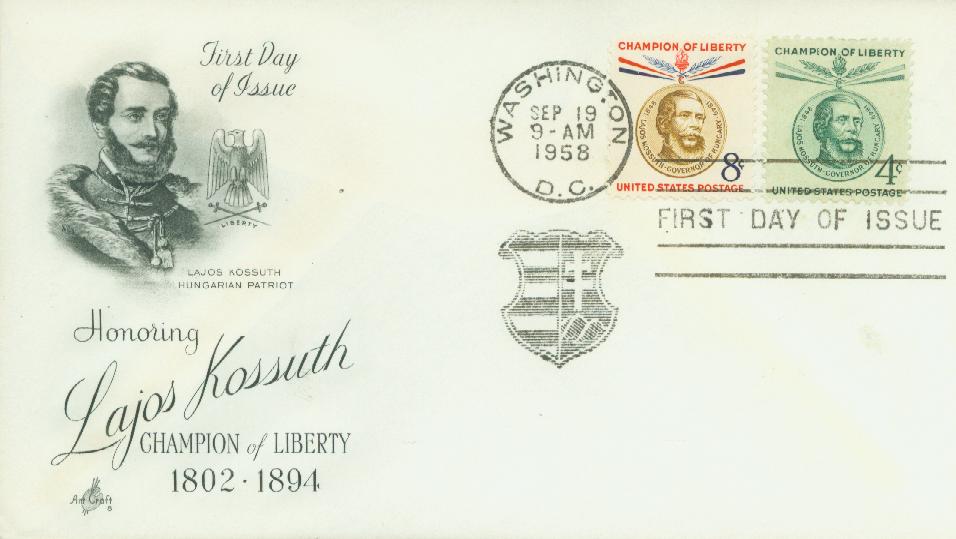
Kossuth continued to work for Hungary’s freedom while in America. He became the second foreign citizen to address the joint houses of Congress (Lafayette was the first). Kossuth was given a congressional banquet and received at the White House by President Millard Fillmore. His popularity was so great that it caused tensions between the United States and Austria, who wanted him given into their custody.
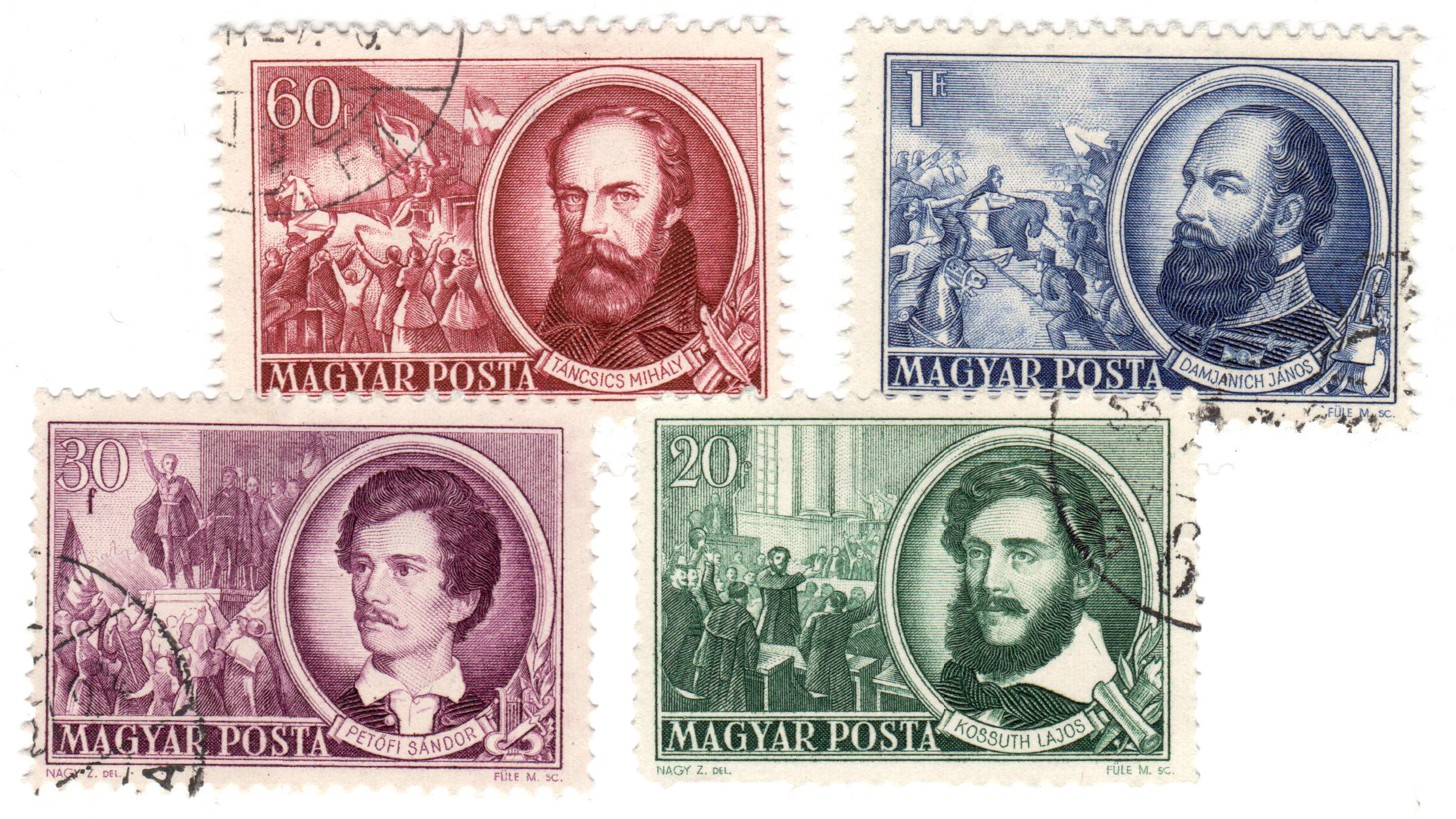
Kossuth returned to London for eight years before moving to Italy. During his time there, the Austro-Hungarian Compromise was negotiated in 1867, which was a major blow to his cause. He was elected to the Diet of 1867, but never took his seat. A later law also removed citizenship for Hungarians out of the country for more than 10 years.
Kossuth died in Turin, Italy, on March 20, 1894. His body was returned to Budapest in a large national funeral.
1958 4¢ Lajos Kossuth
Champions of Liberty
Birth Of Lajos Kossuth

Hungarian lawyer, statesman, and Governor-President Lajos Kossuth was born on September 19, 1802, in Monok, Kingdom of Hungary.
Kossuth was the oldest of four children born into a Lutheran noble family. Growing up, he spoke Hungarian, German, and Slovak and studied at the University of Pest.
As a young man, Kossuth worked at his father’s law practice and as steward to the countess Szapáry. He then served as deputy to Count Hunyady at the National Diet (the main legislative body). In that role, he made detailed reports on the proceedings, which were circulated among other magnates, gaining him attention. Kossuth was then tasked with editing a parliamentary gazette, which helped him gain further notoriety. Eventually, Kossuth was ordered to stop circulating his gazette, but he spoke out about the importance of freedom of the press and was arrested, charged with high treason, and imprisoned for five years. He used his time in prison to read and learn English.

By the time of his release, Kossuth was a national hero and was made editor of a liberal newspaper. Kossuth called for Hungarian to be declared the national language and the possible independence from Austria. In 1847, he was elected to the new Diet and became a leader in the Opposition Party. The following year, news of the revolution in Paris inspired him to demand a parliamentary government for Hungary and a constitutional government for the rest of Austria. Kossuth quickly became a leader of the European revolution. When his speech was read in Vienna, a mob erupted.
A revolution then broke out in Buda and the emperor assented. They created the first Hungarian responsible government and Kossuth was made Minister of Finance. In that role, he established a new Hungarian coinage and produced banknotes with his name printed prominently on them (they became known as Kossuth Notes). A new paper was also started and named after him.

Kossuth delivered a notable speech in July 1848, telling the nation to arm in self-defense and calling on 200,000 men to take up arms. He then traveled from town to town to gain support. That October, he was made Prime Minister of Hungary and president of the Committee of National Defence. By April 1849, the Hungarians had several military victories and Kossuth issued the Hungarian Declaration of Independence. Kossuth was then made regent-president, a position he held from April 11 to August 11 of that year. With the entry of Russian forces into the war, he abdicated, allowing a general to take his place, but he ended up surrendering to the Russians, who in turn gave them over to the Austrians.

Kossuth then had to flee his home. He first went to the Ottoman frontier before making his way to England. In England, thousands turned out for his appearances and speeches, moved by his revolutionary ideas. England was taken over by Kossuth mania, with some politicians attempting to suppress his popularity, but to no avail.
In December 1851, Kossuth sailed to America. The mania followed him there, where in New York City he was greeted as a hero. In fact, shops all over New York City offered Kossuth themed gifts that year – pipes, umbrellas, belts, purses, jackets, and more. And one sign referred to Kossuth as “the Washington of Hungary.”

Kossuth continued to work for Hungary’s freedom while in America. He became the second foreign citizen to address the joint houses of Congress (Lafayette was the first). Kossuth was given a congressional banquet and received at the White House by President Millard Fillmore. His popularity was so great that it caused tensions between the United States and Austria, who wanted him given into their custody.

Kossuth returned to London for eight years before moving to Italy. During his time there, the Austro-Hungarian Compromise was negotiated in 1867, which was a major blow to his cause. He was elected to the Diet of 1867, but never took his seat. A later law also removed citizenship for Hungarians out of the country for more than 10 years.
Kossuth died in Turin, Italy, on March 20, 1894. His body was returned to Budapest in a large national funeral.












